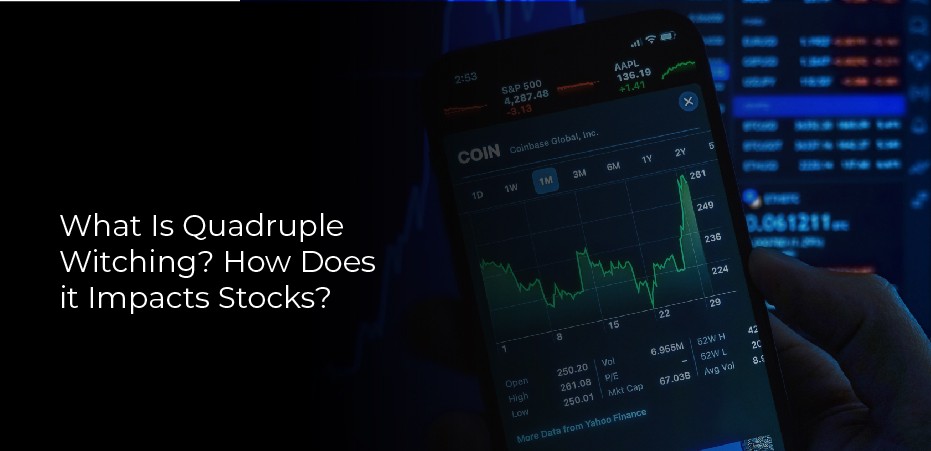On the third Friday of every March, April, May, and June, the stock market experiences what is known as quadruple witching? This phenomenon occurs when four different types of financial contracts expire on the same day. The four contracts are equity options, index options, single stock futures, and total return swaps.
The reason quadruple witching creates volatility in the markets is that it’s seen as a time when traders who are holding losing positions may decide to sell their stocks in order to avoid further losses. As a result, prices can swing wildly as traders rush to liquidate their positions.
While quadruple witching can be a volatile time for the markets, there is also the potential for big gains. So if you’re looking to make some quick profits, this could be your opportunity. Just be prepared for some intense volatility!
Types of Contracts Involved in Quadruple Witching
Options Contracts
Options contracts are a great way to secure your investment in a particular stock. They offer you the opportunity to buy or sell a certain number of shares at a set price, called the strike price, by a certain date.
This way, you can protect yourself from dramatic drops in stock prices while still benefiting from any increase in value. You can also choose an options contract that will allow you to benefit from the stock’s performance without having to actually own the stock.
Index Options
Index options are a type of option contract that gives the holder the right, but not the obligation, to buy or sell a specified number of shares of the underlying stock at a predetermined price called the strike price.
The holder of an index call option has the right to buy shares of the underlying stock at the strike price, while the holder of an index put option has the right to sell shares of the underlying stock at the strike price.
Index options are usually traded on a national securities exchange such as the Chicago Board Options Exchange (CBOE) or on an electronic communications network (ECN).
Single Stock Futures
Single stock futures are a type of derivative contract that allows investors to trade the price of a single stock, rather than having to buy the underlying security. The contract is based on the price of the stock at a specific point in time in the future.
How Do They Work?
When you buy a single stock future, you are agreeing to purchase the underlying security at a set price on a specific date in the future. If the price of the security falls below the set price, you may be able to sell your contract at a profit and walk away. If the price of the security rises above the set price, you may have to sell your contract at a loss.
Index Futures
Index Futures are a type of futures contract that is based on stock indexes. Index Futures are traded on the Chicago Mercantile Exchange (CME) and allow investors to trade the movement of stock indexes without having to purchase the underlying stocks.
There are two types of Index Futures contracts – Single Stock Index Futures and Sector Index Futures. Single Stock Index Futures are contracts that are based on a specific stock index, such as the S&P 500 or Dow Jones Industrial Average. Sector Index Futures are contracts that are based on a group of stocks, such as technology stocks or energy stocks.
Index Futures contracts expire on the third Friday of the month and must be settled by the end of the trading day.
Market Impact of Quadruple Witching
An event known as quadruple witching takes place on the third Friday of every March, June, September, and December. On this day, options and futures contracts on stocks and indexes expire. In addition, the underlying stocks and indexes themselves change hands, and new options and futures contracts are born. The result is a high-volume day in which traders must rapidly adjust their positions.
The market impact of quadruple witching can be significant. In some cases, the expiration of options and futures contracts can lead to sharp price movements in the underlying stocks or indexes. This can cause turbulence in the markets and create opportunities for savvy traders.
However, it’s important to note that not all quadruple witching days are created equal. Some are more volatile than others, and traders need to be aware of this when making trading decisions.
Closing and Rolling Out Futures Contracts
Closing futures contracts is the process of settling a futures contract by exchanging the difference in prices between the contract’s initial purchase and sale. The closing process usually occurs on the final day of trading for the given contract.
When trading futures contracts, it’s important to be aware of the rolling process. Rolling out a futures contract is the action of exiting one open position and simultaneously entering into another position with a different expiration date. This is done in order to avoid or delay the liquidation of an existing position.



